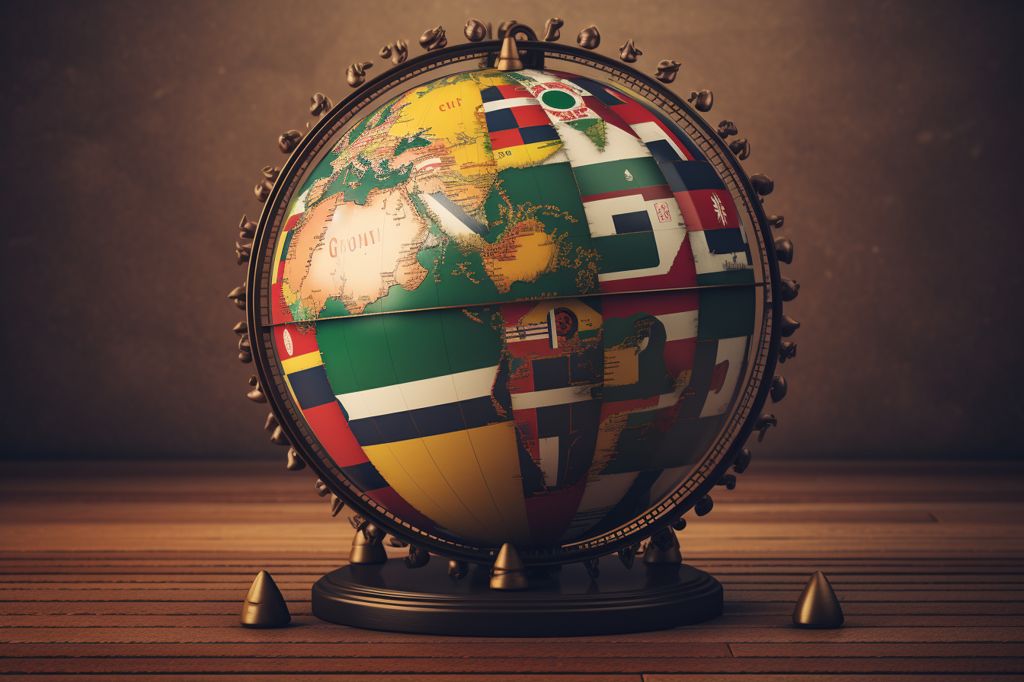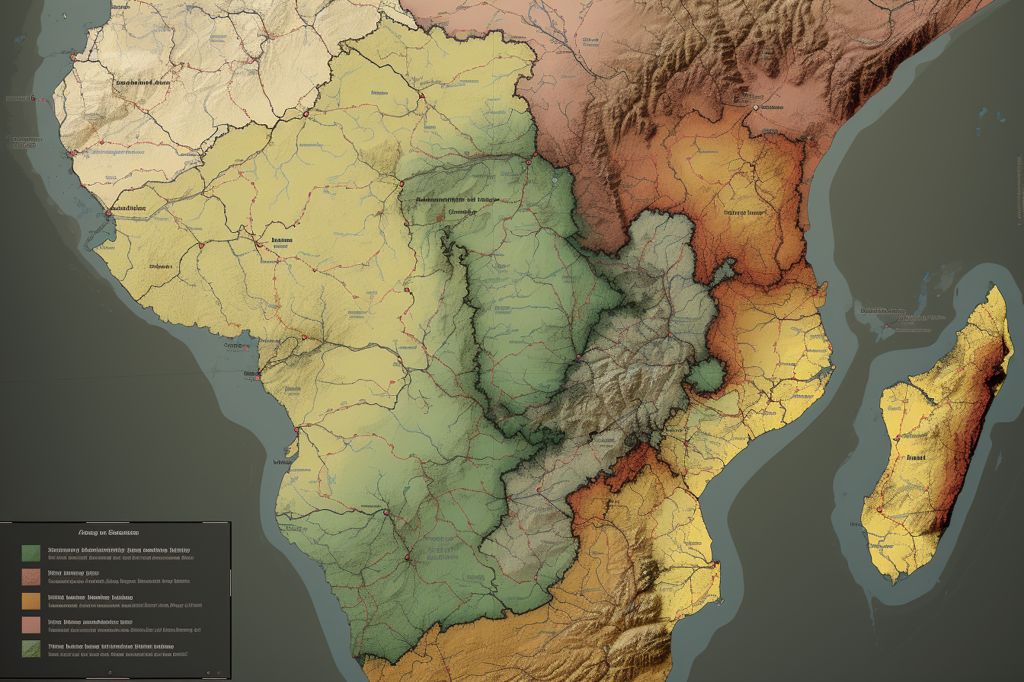South Africa’s President Cyril Ramaphosa held a high-profile Credentials Ceremony in Pretoria, during which he accepted Letters of Credence from Mission-Designate Heads representing various nations, emphasizing the necessity of cultivating and sustaining international relationships. The ceremony included representatives from diverse nations, illustrating South Africa’s wide-ranging impact and influence on the global stage. South Africa’s thriving arts scene exemplifies how meaningful partnerships and collaborations can spark creativity and innovation, and as the nation continues to form new relationships and reinforce existing ones, it solidifies its position as an essential player in the global community while enriching its cultural landscape.
Strengthening Global Ties: The Credentials Ceremony in Pretoria
As the world becomes more interconnected and calls for stronger international partnerships and collaboration, South Africa has made a significant advancement. On October 3rd, 2023, President Cyril Ramaphosa held a high-profile Credentials Ceremony in Pretoria, during which he accepted Letters of Credence from Mission-Designate Heads representing various nations.
These Letters of Credence are formal diplomatic documents that confirm ambassadors’ appointments by their governments to serve as representatives of their countries in South Africa. This exchange of diplomats emphasizes the necessity of cultivating and sustaining international relationships in an ever-evolving global environment.
The ceremony included representatives from countries such as Portugal, Poland, Jamaica, Colombia, France, Algeria, Vietnam, Angola, Lesotho, Brazil, Netherlands, India, Georgia, Indonesia, Denmark, Ireland, Tunisia, Equatorial Guinea, Czech Republic, Lithuania, Zambia, Jordan, and Estonia. The presence of these diverse nations at the event illustrates South Africa’s wide-ranging impact and influence on the global stage.
South Africa’s Rich Cultural History and Global Impact
As the South African government works to build and strengthen diplomatic ties with countries worldwide, the nation’s vibrant history and culture take center stage. South Africa has long been a melting pot of various civilizations, cultures, and artistic expressions throughout history. From the ancient San people’s rock art to the lively contemporary art scene in cities like Johannesburg, the nation’s creative spirit has constantly evolved and adapted.
South African artists and cultural institutions have recently gained international recognition for their innovative, thought-provoking, and transformative works. This increased prominence in the global art scene has not only enriched the country’s cultural landscape but also solidified South Africa’s position as an essential player in the world of art and culture.
The nation’s capacity to form meaningful relationships with countries worldwide stems from its unique history and diverse cultural composition. South Africa’s complex past, marked by colonialism, apartheid, and the fight for freedom, has left an indelible mark on its identity and shaped its approach to international relations.
Looking Ahead: South Africa’s Continued Diplomatic and Cultural Growth
In the post-apartheid era, South Africa has become a formidable force in the international community, advocating for human rights, democracy, and social justice. The nation’s dedication to these principles has allowed it to create strong alliances with countries that share its vision for a fairer and more just world.
By welcoming these newly-appointed diplomats, South Africa reasserts its commitment to promoting collaboration, trust, and mutual respect among the international community. The ambassadorial exchange not only encourages increased economic cooperation and investment opportunities but also offers a platform for cross-cultural exchange and learning.
South Africa’s thriving arts scene exemplifies how meaningful partnerships and collaborations can spark creativity and innovation. By sharing ideas, experiences, and artistic practices, South African artists can engage with their international counterparts in ways that transcend borders, languages, and cultures.
Establishing diplomatic relations with more countries provides South Africa with a unique opportunity to showcase its cultural wealth and heritage on a global stage. Through events like the Credentials Ceremony, South Africa demonstrates its dedication to diplomacy and international cooperation while simultaneously advancing its role as a significant cultural and artistic center.
The diverse group of countries present at the ceremony in Pretoria signifies South Africa’s increasing influence on the global stage – an influence that spans not only politics and economics but also art and culture. As the nation continues to form new relationships and reinforce existing ones, the world eagerly anticipates the outcomes of these diplomatic endeavors.
In conclusion, as South Africa welcomes these Mission-Designate Heads from various countries, the nation takes another stride in its ongoing pursuit of international diplomacy, cooperation, and cultural exchange. By cultivating robust, mutually beneficial relationships with countries worldwide, South Africa solidifies its position as an essential player in the global community while also enriching its cultural landscape through the sharing of ideas, experiences, and artistic expressions.
1. What is the Credentials Ceremony in Pretoria?
It is a high-profile ceremony in which the President of South Africa, Cyril Ramaphosa, accepts Letters of Credence from Mission-Designate Heads representing various nations, formal diplomatic documents that confirm ambassadors’ appointments by their governments to serve as representatives of their countries in South Africa.
2. What is the importance of cultivating and sustaining international relationships in the global environment?
Cultivating and sustaining international relationships is vital in an ever-evolving global environment because it strengthens diplomatic ties, encourages increased economic cooperation and investment opportunities, and offers a platform for cross-cultural exchange and learning.
3. What nations were represented at the Credentials Ceremony?
Representatives from diverse nations, such as Portugal, Poland, Jamaica, Colombia, France, Algeria, Vietnam, Angola, Lesotho, Brazil, Netherlands, India, Georgia, Indonesia, Denmark, Ireland, Tunisia, Equatorial Guinea, Czech Republic, Lithuania, Zambia, Jordan, and Estonia, were present at the event.
4. What does the presence of diverse nations at the event illustrate?
The presence of diverse nations at the event illustrates South Africa’s wide-ranging impact and influence on the global stage.
5. What is South Africa’s rich cultural history and global impact?
South Africa has long been a melting pot of various civilizations, cultures, and artistic expressions throughout history. From the ancient San people’s rock art to the lively contemporary art scene in cities like Johannesburg, South Africa’s creative spirit has constantly evolved and adapted.
6. What is South Africa’s position in the world of art and culture?
South Africa’s increased prominence in the global art scene has not only enriched the country’s cultural landscape but also solidified its position as an essential player in the world of art and culture.
7. What does the ambassadorial exchange encourage?
The ambassadorial exchange not only encourages increased economic cooperation and investment opportunities but also offers a platform for cross-cultural exchange and learning.
8. What does the future hold for South Africa’s diplomatic and cultural growth?
South Africa’s ongoing pursuit of international diplomacy, cooperation, and cultural exchange will continue to strengthen its position as an essential player in the global community while also enriching its cultural landscape through the sharing of ideas, experiences, and artistic expressions.









